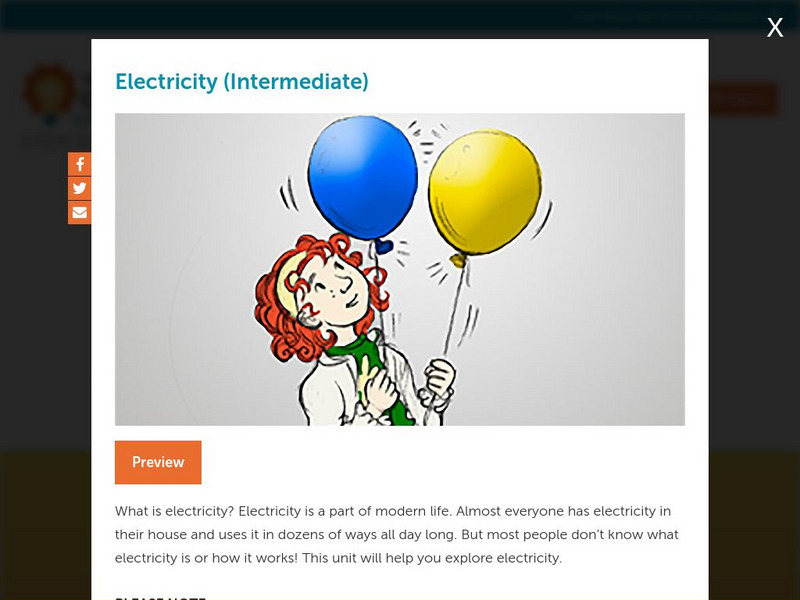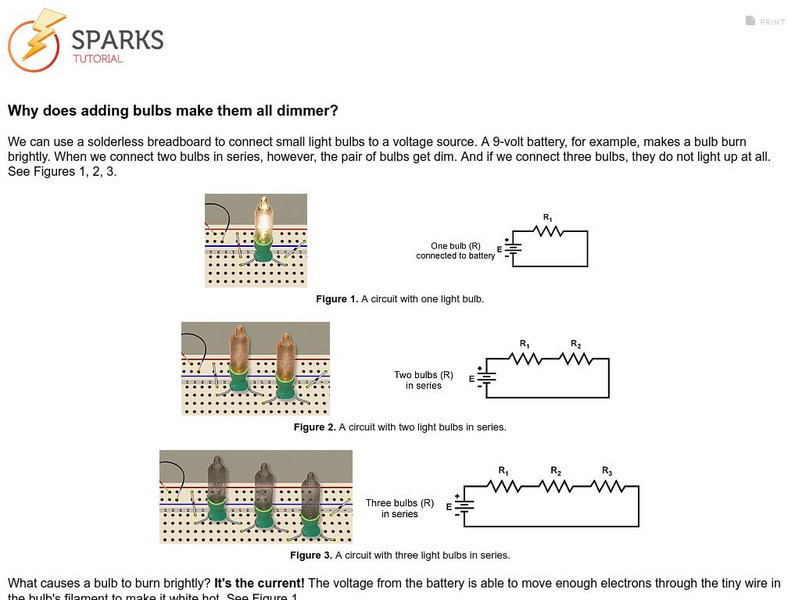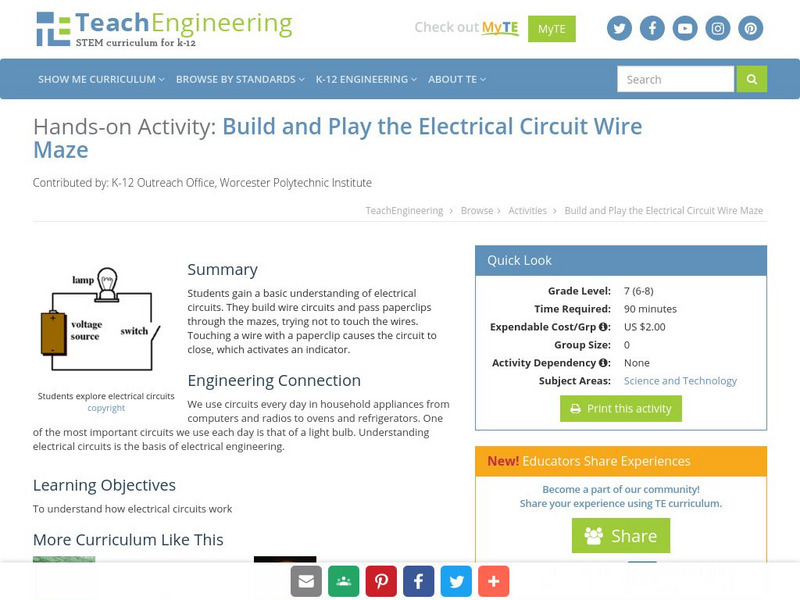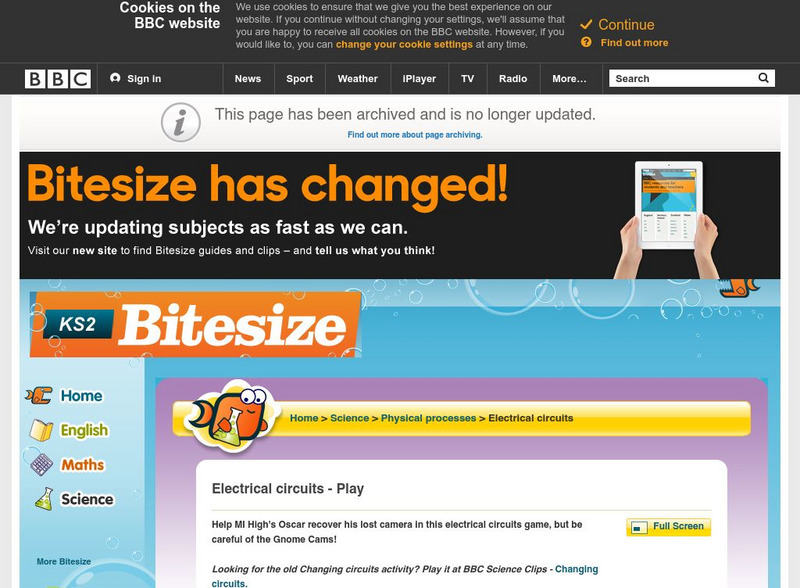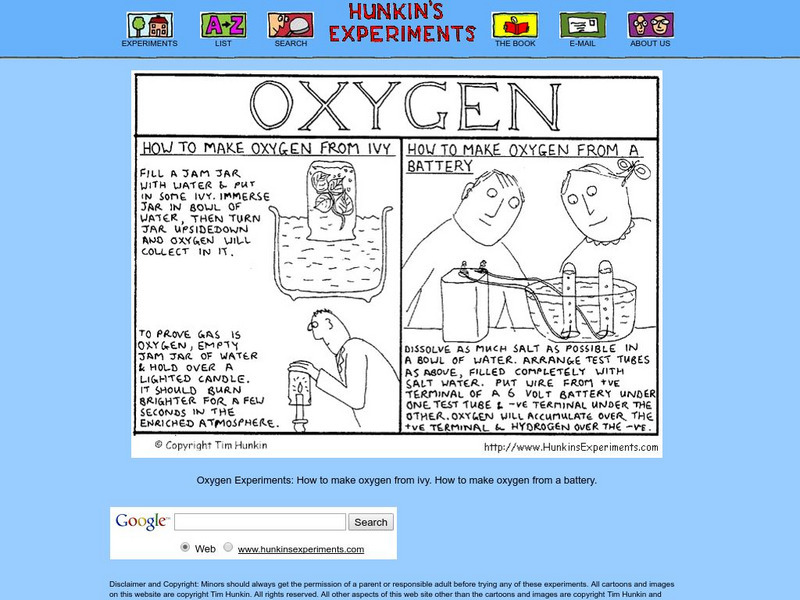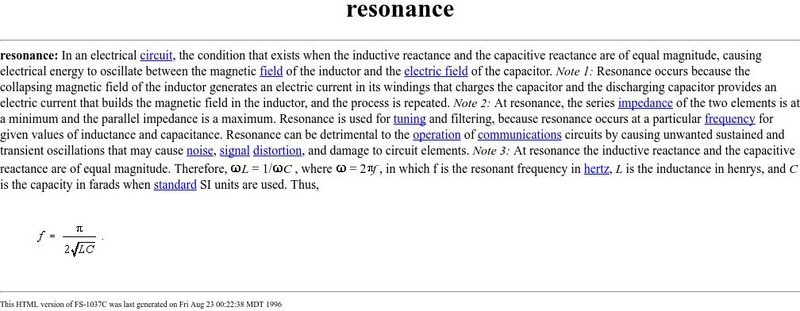Science Struck
Science Struck: Lcr Meter Working Principle and Uses
Explains what an LCR meter is and how it is used to measure the inductance, capacitance, and resistance of a circuit. Lists the different parameters of a circuit that it measures, describes two types of LCR meters, and gives definitions...
Science Struck
Science Struck: Why Do Citrus Fruits Conduct Electricity?
Discover what it is about citrus fruits that enable them to conduct electricity, then make your own citrus fruit battery using the instructions given here.
Concord Consortium
Concord Consortium: Calculating Reactance
Find out how the current in a circuit can be impeded by three types of circuit components.
Concord Consortium
Concord Consortium: Electricity (Intermediate)
Explore how electricity works in this module. (Requires Java)
Concord Consortium
Concord Consortium: Why Does Adding Bulbs Make Them All Dimmer?
This tutorial illustrates why adding bulbs to a circuit makes all the bulbs dimmer.
CK-12 Foundation
Ck 12: Physics Simulation: Flashing Neon Light
[Free Registration/Login Required] Learn about how capacitors are used in circuits to create transient events such as the flash of a light bulb using this interactive simulation. A PDF worksheet and a video tutorial are also available....
Intel Corporation
Intel Education: Circuits and Switches
By comparing household electricity to household plumbing, this tutorial makes the concepts of electricity easier to understand. Includes video clips and interactive activities; click on "Instructional Strategies" for teacher resources...
TeachEngineering
Teach Engineering: Wire Maze
Students will build a wire circuit and pass a paperclip through the maze, trying not to touch the wire. Touching the wire with the paperclip will cause the circuit to close, which will activate the indicator.
BBC
Bb Ci Schools: Revisewise Science Electricity
This lesson provides an interactive activity on electrical circuits along with a information sheet and a practice test.
Hunkins Experiments
Hunkin's Experiments: How to Make Oxygen From a Battery
Hunkin's Experiments is a group of simple cartoon illustrations of scientific principles. Some would work well in the classroom, but others have little value beyond entertaining students. All of the projects are easy to do. This one...
Science Struck
Science Struck: Lemon Battery Experiment
In this step-by-step experiment, you will learn how to make a battery using four lemons and use it to light an LED bulb.
Science Struck
Science Struck: Amperage vs. Voltage What Is the Difference?
This article explains what voltage and amperage are and the effect batteries have on them in an electrical circuit.
Other
Institute for Telecommunication Sciences: Resonance
This site contains a straightforward definition of resonance in an electrical circuit.




